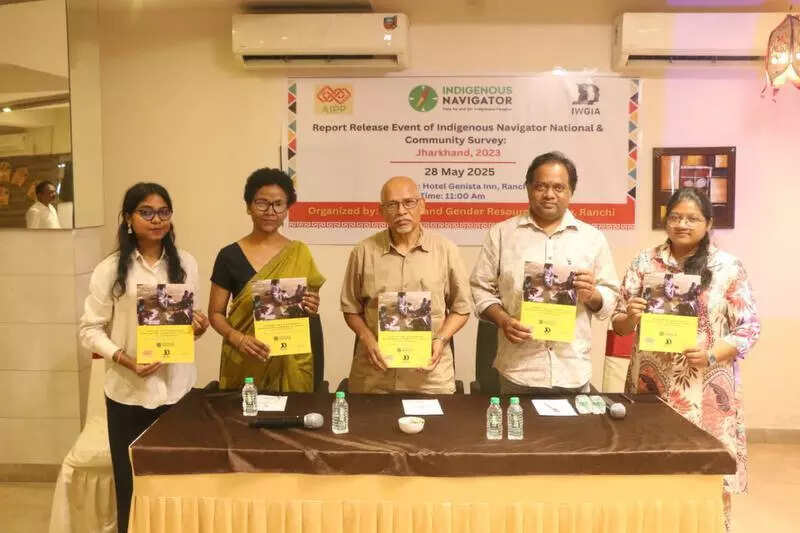Indigenous Communities in Jharkhand: Challenges and Solutions
Economic Struggles and Migration
Indigenous communities in Jharkhand face tough economic times. Many are forced to leave their homes to find work. Traditional jobs are fading away. Government support is often missing.
Survey Highlights
A recent survey, the ‘Indigenous Navigator Community Survey Report-2023’, sheds light on these issues. The survey was conducted by Indigenous Navigator and shared by the Women and Gender Research Centre (WGRC).
- Communities surveyed: Santhal, Ho, Munda, Oraon, and Kharia
- Locations: 27 villages across Gumla, Simdega, Saraikela-Kharsawan, West Singhbhum, and Khunti districts
Economic and Social Security
Poverty is a major issue. Over 46% of those surveyed live below the poverty line. Only half of the communities receive government aid. This aid includes pensions, maternity benefits, and food security.
Migration Problems
Young people are leaving their homes in search of work. About 42.3% of young men and nearly 50% of young women, aged 15 to 24 years, are migrating for jobs.
Seema Besra, a Santhali representative from Gamharia, shared her thoughts. “We have to leave our villages because there are no jobs. There is no training to improve our skills. We only hear empty election promises.”
Land Rights and Conflicts
Only 8% of communities have full legal rights over their ancestral lands. A staggering 81% report ongoing land conflicts.
Virginius Xaxa, an expert, commented on the situation. “Even after 25 years of Jharkhand’s creation, protective laws are not fully implemented. The exploitation of indigenous communities continues.”
Education and Awareness
Education is lacking. 88% say that tribal languages and histories are not taught in schools. Many people also lack access to government and media. 77% say there is no tribal language content on state-run platforms.
Over 65% of people do not have access to legal aid. They are not aware of their legal rights.
Community-Driven Development
Bineet Mundu from WGRC stressed the need for local solutions. “We need development policies that are locally rooted and community-driven. State help must go beyond just showing support. Indigenous communities need dignified access to land, education, and economic opportunities. These should be designed with their direct participation.”
Elina, another WGRC representative, highlighted the need for ground-level implementation of the PESA Act. She also emphasized the importance of secure land tenure, vocational training, and community-based development models.
Call for Policy Actions
The meeting ended with a call for clear, time-bound policy actions. These actions should be guided by Free, Prior, and Informed Consent (FPIC). The goal is to uphold indigenous rights and economic dignity in Jharkhand.




